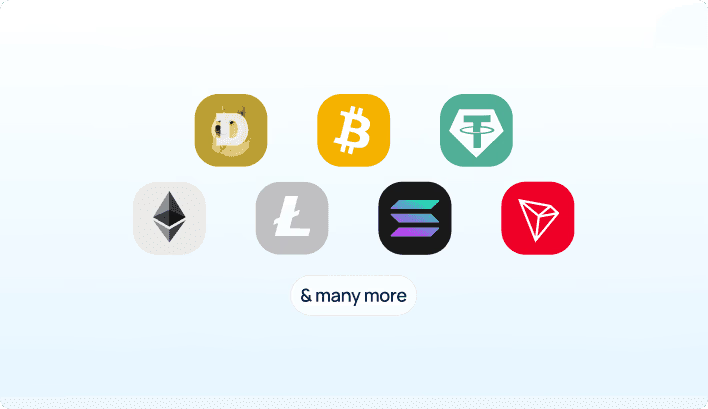In today's data-driven business landscape, competitive intelligence provides critical insights that inform strategic decisions. However, effective intelligence gathering often requires accessing publicly available information across various online sources without being identified and blocked. This comprehensive guide explores how to use ProxyVault's proxy solutions to build a robust competitive intelligence operation.
The Competitive Intelligence Challenge
Gathering competitive intelligence online presents several challenges:
- Websites blocking repeated access from the same IP
- Competitors identifying and blocking known monitoring IPs
- Geographically restricted content that varies by location
- Dynamic pricing that changes based on visitor profiles
- Accessing information at scale without triggering security systems
ProxyVault's diverse proxy infrastructure allows you to overcome these challenges by masking your identity and distributing requests across multiple IPs.
Step 1: Define Your Intelligence Objectives
Before implementing any technical solution, clearly define what competitive data you need:
| Intelligence Type | Examples | Recommended Proxy Type |
|---|---|---|
| Pricing Intelligence | Product pricing, discounts, pricing strategies | Residential (high security) or Datacenter (high volume) |
| Product Intelligence | New products, features, specifications | Mixed proxy types |
| Geographic Intelligence | Regional pricing, availability, promotions | Country-specific residential proxies |
| Marketing Intelligence | Advertisements, SEO positions, content strategy | Diverse residential IPs |
Step 2: Select the Right Proxy Strategy
Different intelligence goals require different proxy approaches:
For Price Monitoring
When tracking competitor pricing, you need reliable access with minimal blocking:
- Use residential proxies for e-commerce sites with sophisticated anti-bot systems
- Rotate IPs regularly but maintain consistent user profiles
- Implement geolocation targeting to see region-specific pricing
// Example: Price monitoring with ProxyVault API
async function monitorPrices(productUrls, targetCountries) {
const results = [];
for (const country of targetCountries) {
// Get a proxy from specific country
const proxyResponse = await fetch(
`https://api.proxyvault.com/v1/random/json?country=${country}`,
{
headers: {
'Authorization': 'Bearer YOUR_PROXYVAULT_API_KEY'
}
}
);
const proxyData = await proxyResponse.json();
const proxy = proxyData.data;
// Configure your HTTP client to use this proxy
// Then fetch each product URL to extract pricing
for (const url of productUrls) {
// Implementation depends on your HTTP client
console.log(`Checking price for ${url} using ${country} proxy`);
// Add extraction logic here
// Store results with country context
}
}
return results;
}For Marketing Analysis
When analyzing competitors' SEO and advertising:
- Use diverse residential IPs to see organic search results
- Employ geographic rotation to see regional ad campaigns
- Maintain clean proxy reputation to avoid search engine blocks
For Product Monitoring
Tracking new products and features requires reliable access to competitor websites:
- Use high-performance proxies with low detection risk
- Implement session-based browsing for consistent product data
- Access multiple markets with country-specific proxies
Step 3: Implement a Data Collection System
With your proxy strategy defined, build a systematic data collection process:
Setting Up Automated Collection
// Example: Scheduled competitive intelligence gathering
class CompetitiveIntelligenceSystem {
constructor(apiKey) {
this.apiKey = apiKey;
this.monitoringTargets = [];
this.collectionFrequency = {
pricing: 24, // hours
products: 72, // hours
marketing: 168 // hours (weekly)
};
}
async getProxy(requirements) {
const params = new URLSearchParams({
protocol: requirements.protocol || 'http',
country: requirements.country || undefined,
anonymity: requirements.highSecurity ? 'elite' : undefined,
timeout: requirements.fastResponse ? 5000 : 10000
});
const response = await fetch(
`https://api.proxyvault.com/v1/random/json?${params}`,
{
headers: {
'Authorization': `Bearer ${this.apiKey}`
}
}
);
return await response.json();
}
addTarget(competitor, dataTypes, regions) {
this.monitoringTargets.push({
name: competitor,
url: `https://${competitor}`,
dataTypes: dataTypes,
regions: regions,
lastCollection: {}
});
}
// Additional implementation methods
}Data Storage and Processing
Establish a structured system for storing and analyzing collected data:
- Database schema designed for time-series competitive data
- Historical tracking to identify trends
- Change detection algorithms to spot significant updates
- Automated alerting for important changes
Step 4: Ensure Ethical and Legal Compliance
Responsible competitive intelligence gathering must operate within ethical and legal boundaries:
- Only access publicly available information
- Respect robots.txt directives
- Implement reasonable request rates
- Be mindful of website terms of service
- Focus on public data, not protected information
ProxyVault's proxies should be used responsibly, gathering only information that companies have made publicly available.
Step 5: Scale Your Intelligence Operations
As your competitive intelligence needs grow, ProxyVault's Enterprise plan provides the resources needed to scale:
Leveraging Unlimited Resources
The Enterprise plan offers several advantages for large-scale intelligence operations:
- Unlimited Bandwidth: Collect extensive data without transfer limits
- Unlimited Connections: Monitor multiple competitors simultaneously
- Unlimited Threads: Process data collection jobs in parallel
- Diverse Proxy Pool: Access both residential and datacenter proxies as needed
Distributed Collection Architecture
For enterprise-scale operations, implement a distributed architecture:
- Multiple collection workers operating in parallel
- Regional proxy assignment for geographic distribution
- Load balancing to prevent detection
- Centralized data warehouse for analysis
// Example: Distributed intelligence collection
// Worker process that could run on multiple servers
async function intelligenceWorker(workQueue, apiKey) {
while (true) {
// Get next task from queue
const task = await workQueue.getNextTask();
if (!task) {
await new Promise(r => setTimeout(r, 10000));
continue;
}
try {
// Get appropriate proxy for this task
const proxyResponse = await fetch(
`https://api.proxyvault.com/v1/random/json?country=${task.region}`,
{
headers: {
'Authorization': `Bearer ${apiKey}`
}
}
);
const proxyData = await proxyResponse.json();
const proxy = proxyData.data;
// Perform the intelligence gathering task
// Implementation depends on task type
// Mark task as completed
await workQueue.completeTask(task.id, result);
} catch (error) {
console.error(`Task failed: ${error.message}`);
await workQueue.failTask(task.id, error.message);
}
}
}Step 6: Analyze and Extract Actionable Insights
The ultimate value of competitive intelligence comes from the insights derived:
From Data to Decisions
- Identify pricing trends and promotional patterns
- Detect product launch preparations
- Analyze regional strategy differences
- Map competitive positioning changes
- Predict future competitor moves
Visualization and Reporting
Create actionable intelligence reports for stakeholders:
- Interactive dashboards showing competitive positioning
- Automated alerts for significant changes
- Trend analysis with historical context
- Strategic recommendations based on data
Real-World Case Study: E-commerce Competitive Analysis
A retail client implemented a comprehensive competitive intelligence system using ProxyVault's proxy infrastructure. Their approach included:
- Daily Price Monitoring: Tracking 50,000+ products across 15 competitors using rotating residential proxies
- Geographic Analysis: Comparing pricing across 12 different countries using country-specific proxies
- Promotional Detection: Identifying sales patterns and promotional strategies
- Product Launch Tracking: Monitoring for new product introductions
Results included:
- Optimized pricing strategy leading to 12% margin improvement
- Early detection of competitor product launches
- Identification of underserved market segments
- Improved promotional timing based on competitor patterns
Conclusion
Effective competitive intelligence requires both strategic clarity and technical capability. By leveraging ProxyVault's comprehensive proxy solutions—particularly the Enterprise plan with unlimited bandwidth, connections, and threads—you can build a sophisticated intelligence gathering operation that provides continuous insights into your competitive landscape.
The most successful competitive intelligence operations combine powerful proxy infrastructure with thoughtful analysis, transforming raw data into strategic advantage. With ProxyVault's reliable proxy network, you can maintain continuous visibility into your market while remaining undetected by competitors.



